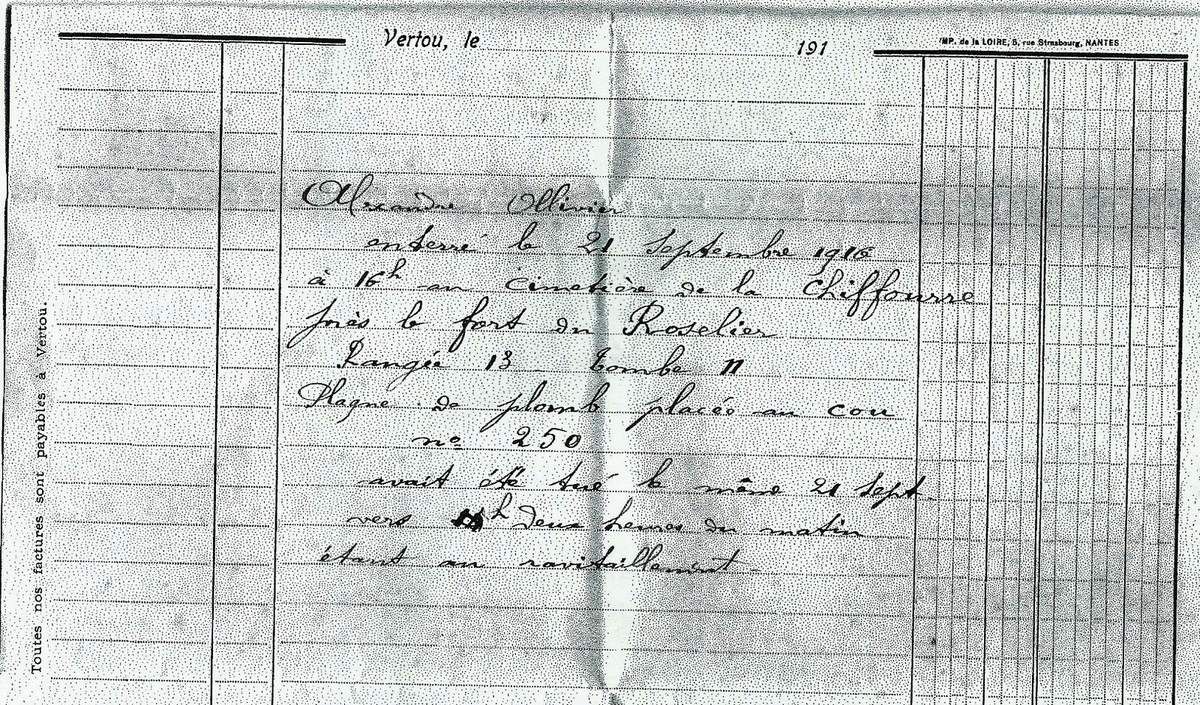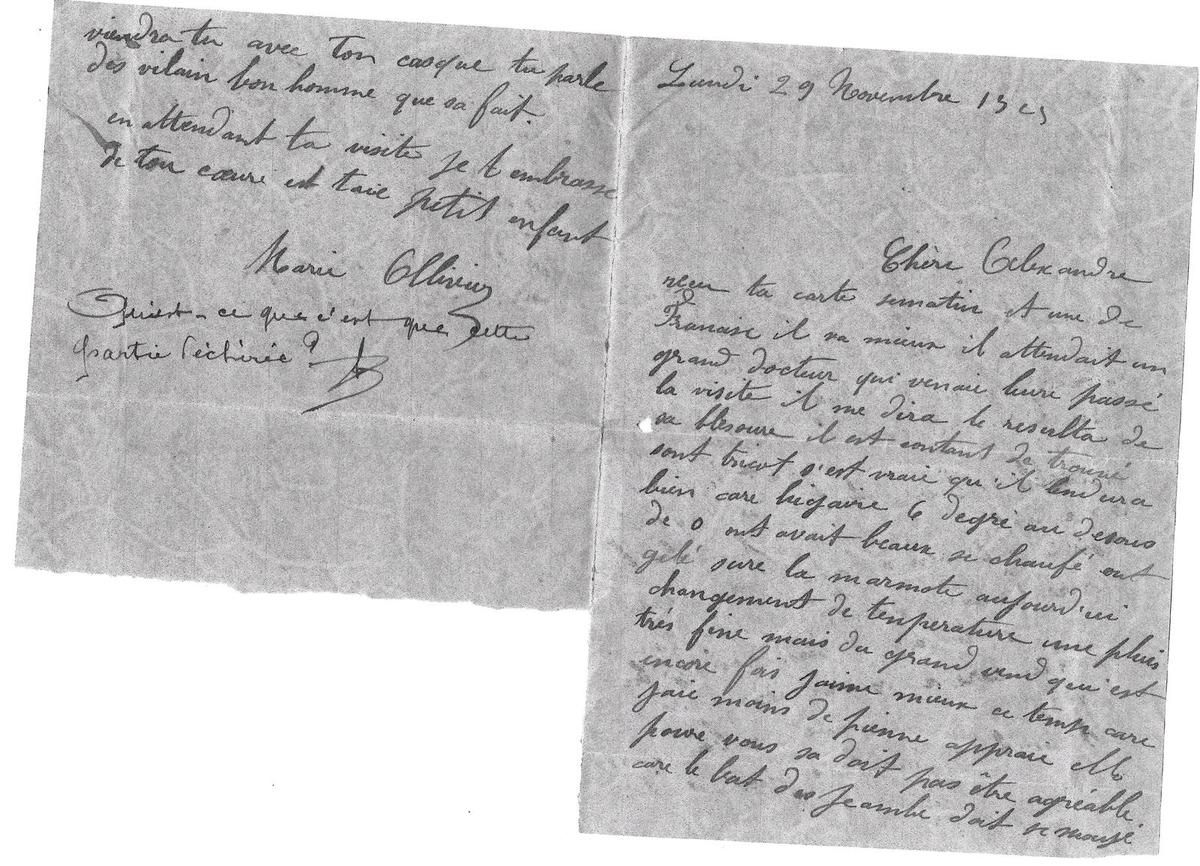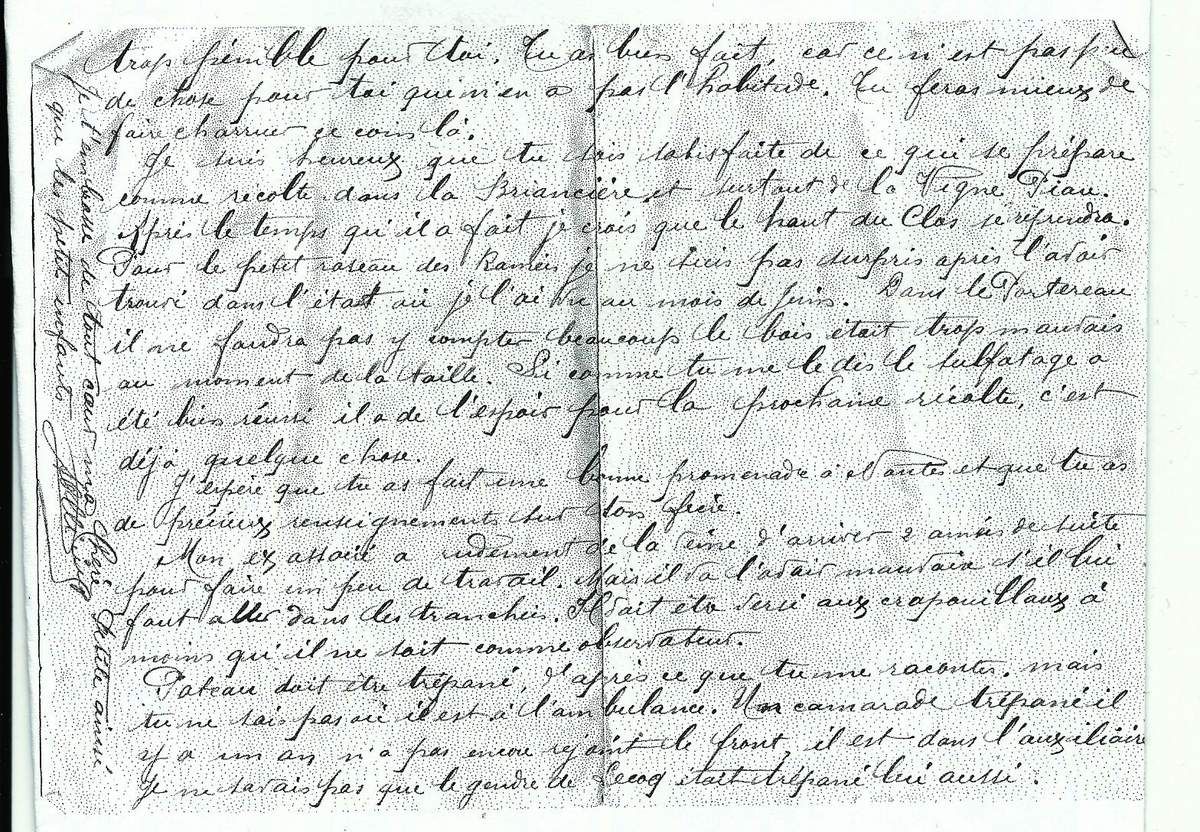My grandparents have passed me some authentic letters sent by my great-great-grandfather. I've tried to summarize some of its contents and to propose a translation.
His life and his family:
He took part in World War I and died there on September 21st, 1916, at about 2:00 a.m..
He received a piece of shrapnel by going to carry the soup to the first trenches, as is indicated in a letter of another member of the family left to the front.
The family, as many of the other families having lost a parent in the war, received a message indicating the day and the hour of the funeral, as well as the date of death.
Censorship:
In a letter that my great-great-grandmother wrote to her husband, she told him that a member of the family on leave was drunk on getting back home with a friend of his. The rest she wrote was torn, the censorship forbidding its contents. My great-great-grandfather could not read this part as shown by the words "- what is that torn part? ".
Among many things, censorship forbade people gone back home to say that the soldiers drank to forget the horrors of the war.
Life in the trenches:
The work increased more and more as one goes along and, often, the rain made things worse. The water sometimes rose up to the belt and it was very difficult to move forward in the mud.
From time to time, the soldiers were allowed to go back home for a few days. They could also visit other soldiers' families "to discuss about the country ".
However, the men who were at war continued to ask their parents or wives about the farms, the properties, the lands, the harvests...
From time to time, the soldiers could listen to mass when a priest was present and found a place to say it. It brought some comfort to the soldiers.
The soldiers tried to inquire about the various people of their families and to know how they were getting on.
They lived in horrible conditions, and the words are weak...
Injustice:
As is indicated in a letter of a friend, a cousin of the family had been degraded and excluded from the Councils of reforms of Nantes. He had been found seriously wounded after the collapse of a shelter. The diagnosis of the hospital announced "désordres myélithiques ", that is disorders due to alcoholism. In fact this soldier was drunk before the collapse, because chief warrant officers incited the soldiers to drink so that the soldiers did not have to think when they rose on the front.
However, this diagnosis damaged enormously the career of this soldier, although it is inequitable, this poor soldier having been a victim of a collapse and having made for what chief warrant officers asked.
Furthermore, some "sergeants chief warrant officers" did not go to the front as is written in a letter from Alexandre to Marie. A few soldiers had found out about it. It was very well hidden by these cowardly sergeants who preferred to send men to be killed rather than go themselves to the front .

/image%2F1301969%2F20150126%2Fob_cb5ad6_fleurs.jpg)








